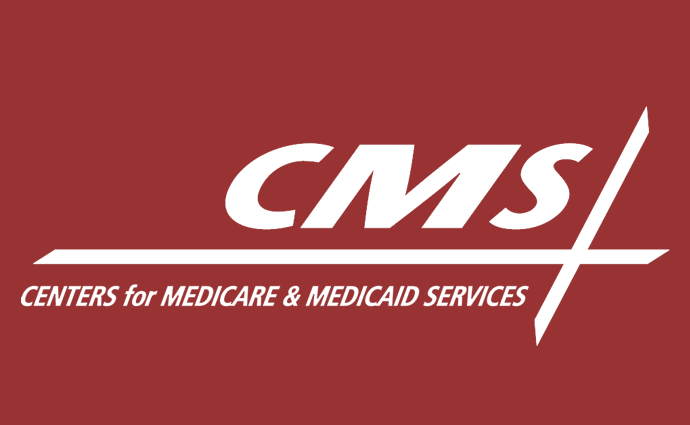CMS Rule Ups Medicare Hospital Payments, Cuts Quality Measures
CMS proposed a rule that would increase Medicare hospital payments while lowering necessary quality measures from hospital providers.

Source: Thinkstock
- CMS has proposed a new federal rule that increases overall Medicare hospital payments while removing 19 quality measures in efforts to lower administrative burden to Medicare providers. The rule would also increase price transparency and provider data to consumers.
The agency explained that the removal of the quality measures can create productivity gains in the Inpatient Prospective Payment System (IPPS) and the Long-Term Care Hospital (LTCH) Prospective Payment System (PPS). CMS estimated that removing the measures and de-duplicating 21 measures may lead to a savings opportunity of $75 million.
CMS Administrator Seema Verma told members of the press via conference call that the proposed rule would allow Medicare hospital providers to effectively focus on the best possible healthcare options for patients.
“We seek to ensure the healthcare system puts patients first,” Verma said a press release. “Today’s proposed rule demonstrates our commitment to patient access to high quality care while removing outdated and redundant regulations on providers.”
“We envision a system that rewards value over volume and where patients reap the benefits through more choices and better health outcomes,” she continued. “Secretary Azar has made such a value-based transformation in our healthcare system a top priority for HHS, and CMS is taking important, concrete steps toward achieving it.”
READ MORE: The Progress and Challenges of the Affordable Care Act
Hospitals in the LTCH would expected payment rate increases of 1.15 percent for FY 2019.
However, the total changes proposed in the final rule would decrease LTCH payments by 0.1 percent or $5 million in FY 2019. The changes reflect inclusion of payment changes extended through the Bipartisan Budget Act of 2018.
IPPS payments would increase drastically more than LTCH payments, according to CMS.
IPPS hospital reimbursement rates are expected to increase by a total of 3.4 percent. The payment increases are expected to create billions of dollars in additional Medicare spending.
“In sum, CMS projects that total Medicare spending on inpatient hospital services, including capital, will increase by about $4 billion in FY 2019,” the agency said in a supplemental fact sheet.
READ MORE: How Payers Address Deep-Rooted Social Determinants of Health
In addition, CMS also plans to increase uncompensated Medicare payments to providers from 2018 totals. The agency will allocate another $1.5 billion to provide $8.25 billion in uncompensated hospital care payments based on data gathered from the CMS Office of the Actuary estimates. CMS will combine FY 2013 low-income data with available cost reports from FY 2014 and FY 2015 to determine final uncompenstated payment totals.
The rule would also remove quality measure within value-based hospital programs based on redundancies and inefficacies.
CMS would remove measures in the Hospital Inpatient Quality Reporting (IQR) Program related to healthcare associated infections, patient safety, and mortality outcomes because they are duplicative to measures in the Hospital Value-Based Purchasing Program (HVBPP).
The rule also removes measures related to resource use, healthcare related infections, and patient safety because those measures are also duplicative in the Hospital-Acquired Condition Reduction Program.
Quality measures within Prospective Payment System (PPS) Exempt Cancer Hospital Quality Reporting Program (PCHQR) Program would also be trimmed.
READ MORE: How Payers Can Add More Value to Medicare Advantage Health Plans
CMS observed that survey and infection-based measures in PCHQR program for oncology and cancer care would be removed under the new rule mainly because many of these measures are “topped-out.” CMS identified topped-out measures as quality categories where an overwhelming majority of providers are performing highly on them.
CMS proposed that removing reporting requirements for Medicare hospital providers would reduce nearly 2 million hours in burdensome reporting without affecting program integrity and patient experience.
Specifically, the agency plans to reduce the number of denied claims based on clerical errors by removing requirements for written inpatient admissions with medical records.
Additionally, the rule removes requirements that Medicare A certification statements need comments about the location of specific medical information within medical records.
The new rule also aims to hold Medicare hospital providers accountable by adding in price transparency regulations to help consumers. The rule requires hospitals to post their standard charges online, which is part of the agency's wider efforts to develop pricing transparency enhancements throughout CMS programs.
The agency added that it is seeking a request for information from stakeholders to address price transparency concerns.
Verma concluded that the proposed updates help advance the agency’s goal in providing high-quality care to CMS beneficiaries by effectively changing healthcare payment and quality administration.
“We must move to a system that pays for value and not merely for the volume of services,” Verma explained. “These proposed rules are just the beginning of our plans to move to a value-based system and as we make this transition our administration is empowering patients because patients should be at the center of cost and quality decisions.”
